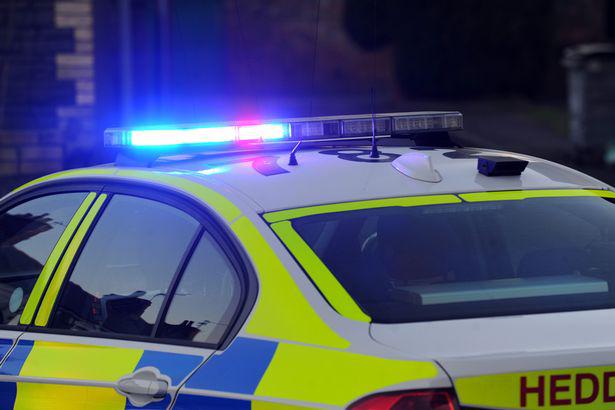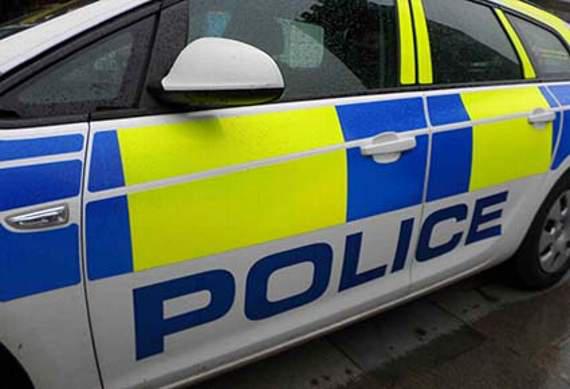Wiltshire Police are urging people to make elderly and vulnerable friends and neighbours alert to telephone scams.
In a recent incident, a man in his 90s from the county was targeted by a fraudster who posed as a police officer.
The criminal convinced the elderly man to withdraw £2,000 from his bank and hand it over to a courier who came to his home address.
The victim was made to believe he was assisting with a police investigation into counterfeit money.
PC Sue McCartney said: “These fraudsters are very convincing and have various tactics to win your trust and convince you that you need to either hand over personal bank details or withdraw cash for them.
“In this particular case the person on the phone was posing as a police officer and even asked the victim to call 999, but the line was still open so when the victim thought he was speaking to a genuine police service, he was still speaking to the scammers.
“There are some simple steps you can take to protect yourself from these types of crimes, and I would strongly urge everyone to take note, and also speak regularly to any elderly or vulnerable friends or family members who may need the message reinforcing to them.”
The police have a list of tips for the public:
- Your bank and the police will never ring and ask you to verify your PIN, withdraw cash or purchase high-value goods. They’ll also never come to your home to collect your card, cash or purchased items. If you get a call like this, end the call.
- If you get a call from your bank or the police, make sure you know who the person is before handing over any personal details. You can do this by calling your bank (the number on the back of your card) or the police (101) on a different phone line.
- To get a different line, use a phone owned by a family member, friend or neighbour. This is because scammers can keep phone lines open after pretending to hang up. So while you think you’re making a new phone call, the line is still open to the scammer, who pretends to be someone from your bank or the police.
- Depending on your bank, the security questions they ask may be different, but they’ll never ask you to authorise anything by entering your PIN into your phone.
- Never send money abroad to a person you've never met or to anyone you don’t actually know and trust.
- Likewise, never agree to keep your online relationship a secret. This is a ploy to get you not to tell your family and friends, who’ll see the scam for exactly what it is.
Further advice can be found at www.actionfraud.police.uk
The criminal convinced the elderly man to withdraw £2,000 from his bank and hand it over to a courier who came to his home address.
The victim was made to believe he was assisting with a police investigation into counterfeit money.
PC Sue McCartney said: “These fraudsters are very convincing and have various tactics to win your trust and convince you that you need to either hand over personal bank details or withdraw cash for them.
“In this particular case the person on the phone was posing as a police officer and even asked the victim to call 999, but the line was still open so when the victim thought he was speaking to a genuine police service, he was still speaking to the scammers.
“There are some simple steps you can take to protect yourself from these types of crimes, and I would strongly urge everyone to take note, and also speak regularly to any elderly or vulnerable friends or family members who may need the message reinforcing to them.”
The police have a list of tips for the public:
- Your bank and the police will never ring and ask you to verify your PIN, withdraw cash or purchase high-value goods. They’ll also never come to your home to collect your card, cash or purchased items. If you get a call like this, end the call.
- If you get a call from your bank or the police, make sure you know who the person is before handing over any personal details. You can do this by calling your bank (the number on the back of your card) or the police (101) on a different phone line.
- To get a different line, use a phone owned by a family member, friend or neighbour. This is because scammers can keep phone lines open after pretending to hang up. So while you think you’re making a new phone call, the line is still open to the scammer, who pretends to be someone from your bank or the police.
- Depending on your bank, the security questions they ask may be different, but they’ll never ask you to authorise anything by entering your PIN into your phone.
- Never send money abroad to a person you've never met or to anyone you don’t actually know and trust.
- Likewise, never agree to keep your online relationship a secret. This is a ploy to get you not to tell your family and friends, who’ll see the scam for exactly what it is.
Further advice can be found at www.actionfraud.police.uk








Your Comments
Be the first to comment on this article
Login or Register to post a comment on this article